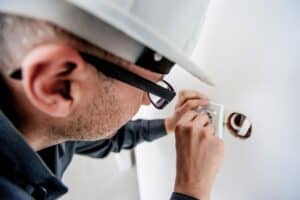Key Takeaways
- Regular electrical safety inspections can help prevent dangerous hazards, such as fires and electrical shocks.
- Inspections help identify outdated wiring, overloaded circuits, and faulty electrical installations.
- Both residential and commercial properties benefit from routine check-ups by licensed professionals.
- Cost savings in the long run often outweigh the upfront cost of inspections and repairs.
- Staying updated on electrical safety standards is crucial for safety and legal compliance.
- Peace of mind comes from knowing your home or business is secure from common electrical risks.
The Growing Need for Electrical Safety
In a world powered by electricity, the safety of electrical systems in homes and workplaces must not be taken for granted. Today’s properties rely on complex wiring to operate everything from appliances and lighting to sensitive business equipment. Unfortunately, this increasing dependence means that even minor electrical faults pose significant dangers. The National Fire Protection Association reports that electrical malfunctions remain a leading cause of structural fires in the United States, often causing severe property loss and risk to life.
This is why understanding the importance of electrical safety inspections is critical for every property owner. Proactive electrical assessments detect hidden flaws such as improper installations, aging wiring, and overloaded circuits, all of which can ignite disasters if left unchecked. Routine inspections do not just protect assets—they safeguard the people who live and work in these environments. By ensuring early detection of problems, property owners can avoid the emotional and financial turmoil that often accompanies electrical failures.
As society continues to embrace more electrical devices and smart technologies, the demand for electrical systems has never been higher. It’s no longer enough to assume that if lights turn on and outlets work, an electrical system is safe. Significant dangers can lurk beneath the surface, requiring regular expert attention to ensure safety is maintained as needs evolve.

Common Hazards Lurking Unseen
Not all electrical dangers are immediately visible. Problems like frayed wires, cracked sockets, and deteriorated circuit breakers may quietly go unnoticed behind walls and panels. In homes, such issues can put families at risk of shocks or fires, especially in older structures where components have aged or been exposed to pests. Commercial properties face the added challenge of complex systems that power multiple areas simultaneously, thereby increasing the likelihood of undetected faults and potential downtime.
In addition, moisture intrusion, DIY electrical work, or renovations performed without proper permits can all lead to hidden vulnerabilities. Mice, squirrels, or insects may chew through insulation, creating spots prone to sparking or arc faults. When these issues go unchecked, the cumulative risks increase, possibly resulting in catastrophic failures. Regular inspections are necessary precisely because these hazards are almost always out of sight and, therefore, out of mind for the average property owner.
Electrical fires are known to spread quickly and silently, giving occupants little time to react. Similarly, faulty outlets or switches can emit tiny electrical arcs, slowly eroding safety over time before manifesting as serious shocks or combustion incidents. These “silent” threats underscore the importance of vigilance, reinforcing the need for professional evaluation.
How Regular Inspections Prevent Costly Damages
The value of periodic inspections extends beyond immediate safety. Professional electricians use specialized tools to check the integrity of wiring, test breaker panels, and ensure all electrical components operate within safe parameters. Identifying and repairing issues before they become emergencies often results in significant long-term cost savings. According to The Electrical Safety Foundation International (ESFI), electrical failures contribute to more than a billion dollars in property losses annually in the U.S. alone. Preventive measures—like inspections—are both a financial and practical necessity.
Unexpected electrical issues don’t just disrupt daily routines—they can demand expensive emergency services, cause extensive damage, and force business closures that erase hard-earned profits. For homeowners, a small investment in routine checks can spare them the heartache of losing irreplaceable belongings or seeing cherished spaces damaged. Preventive inspections may also reduce insurance premiums, as some insurers offer discounts for properties that maintain documented safety protocols.
Furthermore, catching problems early protects not only existing infrastructure but also future upgrades. When property owners plan expansions or remodels, up-to-date electrical systems ensure that new features can be safely integrated, preventing costly rework or compliance failures down the line.
The Benefits for Homes and Businesses
- Homes: Regular inspections offer crucial protection against fires and electrical shocks, ultimately safeguarding human lives. Families rely on everything from basic lighting to essential medical equipment, and safe power delivery is non-negotiable. Proactive safety ensures that loved ones are protected, especially children and elderly relatives who may be more vulnerable to electrical hazards.
- Businesses: Inspections help avoid sudden equipment failures, reduce liability risks, and ensure compliance with occupational safety regulations. Downtime due to electrical problems can result in missed deadlines, customer dissatisfaction, and revenue loss. Up-to-date electrical safety credentials are also often required by insurance providers or governing authorities—further safeguarding business continuity.
- All properties: Insurance providers may refuse claims if negligence is proven, making periodic inspections a wise policy for risk management. Legally, many jurisdictions mandate safety checks for rental or commercial units, and failure to comply can have serious legal repercussions.
For many, scheduling electrical safety assessments becomes as routine as caring for plumbing or heating systems—a proactive step in asset and life protection. Regular inspections become an essential part of property maintenance calendars, offering reassurance that safety is never left to chance.
Modern Electrical Standards and Technology
Advancements in home and commercial technology require property owners to stay informed about evolving electrical codes and best practices. Contemporary building standards require features such as arc-fault circuit interrupters (AFCIs), ground-fault circuit interrupters (GFCIs), and surge protectors to prevent common hazards. These upgrades not only provide critical safety improvements but also accommodate increasing electrical loads as technology grows more integrated into daily life. Following CDC electrical safety recommendations adds an essential layer of assurance and helps ensure legal compliance.
Modern living now involves more sensitive electronics, home office equipment, and smart home features that place unique demands on residential and commercial electrical systems. Retrofitting older properties with the latest safety devices, including tamper-resistant receptacles and dedicated circuits for high-energy devices, keeps pace with these changes. Professionals help ensure upgrades are correctly installed and thoroughly tested, giving property owners confidence in their environment.
Compliance with updated codes also protects property value. During sales or rental processes, verified, up-to-code electrical systems can become a key selling point, making investments in inspections and upgrades a win-win for both safety and market appeal.
Signs You Should Schedule an Inspection
Certain warning signs strongly indicate when an electrical safety inspection is needed. If you notice electrical problems, don’t delay—some issues might signal underlying threats that require immediate attention:
- Frequent circuit breaker trips or blown fuses may indicate overloaded circuits or undetected faults.
- Outlets or switches that are warm to the touch or vibrate, pointing to loose connections or potential arcing.
- Lights that flicker or dim unexpectedly, particularly when using large appliances, may signal wiring or capacity problems.
- Unexplained burning odors around electrical fixtures, which could mean insulation is overheating or wiring is compromised.
- Electrical panels showing signs of rust or corrosion present serious fire and reliability hazards.
Older properties or those that have undergone renovations should also be evaluated for electrical integrity to prevent hidden risks from surfacing down the line. Homes and businesses equipped with outdated fuse boxes or wiring installed decades ago are especially vulnerable and should be prioritized for evaluation.
What to Expect During an Electrical Safety Inspection
A comprehensive inspection involves a series of detailed checks by a licensed professional. Typically, an inspector will:
- Evaluate the condition and capacity of all wiring and circuits, verifying that existing infrastructure can support current electrical demands.
- Inspect the electrical panel for proper labeling and maintenance, making sure no circuits are improperly doubled or overloaded.
- Check grounding and bonding to minimize shock risk and optimize the path for fault currents.
- Look for signs of pest damage or component aging, which can compromise insulation and connections.
- Suggest potential upgrades for energy efficiency and system resilience, maximizing safety as well as performance.
Following the inspection, property owners receive a full report outlining crucial repairs, recommended updates, and expert maintenance tips for ongoing safety. These written evaluations act as a valuable reference for future work and can be supplied to insurers or authorities if needed.
Being informed empowers owners to make the right decisions about maintenance schedules and prioritize repairs, ultimately benefiting everyone who uses the premises.
The Value of Professional Electrical Services
Electrical work should always be entrusted to experts with the appropriate training and certifications. Skilled electricians can identify subtle issues that might otherwise be missed and ensure that repairs are completed safely and to code. This is especially important for both homeowners and business operators seeking lasting reliability from their electrical systems.
Qualified professionals have the latest tools and knowledge to diagnose complex issues, recognize code violations, and recommend proper upgrades. Relying on non-professional repairs or DIY fixes, even for seemingly minor tasks, can create new risks or void warranties and insurance coverage.
Trustworthy electrical contractors also offer ongoing advice about energy savings and risk reduction, keeping properties aligned with the newest standards while avoiding unnecessary expenses—ultimately adding long-term value.
Prioritizing Electrical Safety for Peace of Mind
Safety is not solely about meeting regulations—it’s about cultivating confidence that your property and its occupants are protected against preventable harm. A commitment to regular electrical safety inspections provides unparalleled peace of mind, ensuring that small issues are identified and addressed before they escalate, and that evolving standards are consistently met. Staying proactive remains the smartest way to extend the lifespan of property investments and protect those who matter most.
Peace of mind comes from knowing you’ve done everything possible to avoid dangerous surprises in your home or business, whether you manage a bustling workplace or are simply looking after your family. Prioritizing electrical safety inspections means safeguarding lives, reputations, and investments—now and for years to come.







